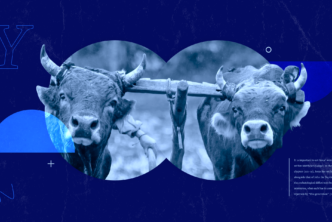Our family has made several major transitions in the past few months—from our home in the Middle East to Europe briefly and then to the United States—while also considering new options abroad for the near future. There has been so much change that when my elementary-age children were asked where they lived, they stared blankly and then turned to me for the correct answer. The primary question in our family right now is, “Where is home?”
This question is not limited to expatriate families. It is one I frequently had when I was a child moving from military base to military base, in my teenage years when my parents divorced, and when I moved into my college dorm room. A home is not merely a place to live, but a place of belonging and safety. “Home” is such an anchoring concept, and its absence may leave us unmoored in a chaotic life.[pullquote]
These times of chaos can lead to blessing, however, as we are forced to cast ourselves on the strength of the Lord, and find that he is enough for all our weakness.[/pullquote]
Psalm 84 has been a comfort to me this year. The psalmist declares, “Blessed are those whose strength is in you, whose hearts are set on pilgrimage. As they pass through the Valley of Baka, they make it a place of springs” (Psa 84:5–6).
In these times of upheaval, all our typical sources of strength can easily be sapped. No longer can we rely on our experience and understanding, for this is new territory. When our resources are insufficient, it can be terrifying. These times of chaos can lead to blessing, however, as we are forced to cast ourselves on the strength of the Lord, and find that he is enough for all our weakness.

The “Valley of Baka” can be translated as the “Valley of Tears.” This is an important aspect of this pilgrimage we embark on. It is painful. It involves loss and grief. Jesus promised his disciples that in this world we would have trouble (John 16:33). But this pilgrimage turns the “Valley of Tears” into a “place of springs.” New life bubbles up from the very ground of pilgrimage as the Lord redeems the pain and loss for his purposes in us.
The author of Hebrews speaks of those who walk by faith toward a better home through many Valleys of Tears. He writes, “If they had been thinking of the country they had left, they would have had the opportunity to return. Instead, they were longing for a better country—a heavenly one. Therefore God is not ashamed to be called their God, for he has prepared a city for them” (Heb 11:15–16).
May we press on toward our true home, with our hearts set on pilgrimage.
This post is adapted from the original post in the May/June 2020 edition of Bible Study Magazine.
Aubry Smith is a cross-cultural trainer for a Christian international nonprofit organization. She is the author of Holy Labor: How Childbirth Shapes a Woman’s Soul (Kirkdale, 2016).






